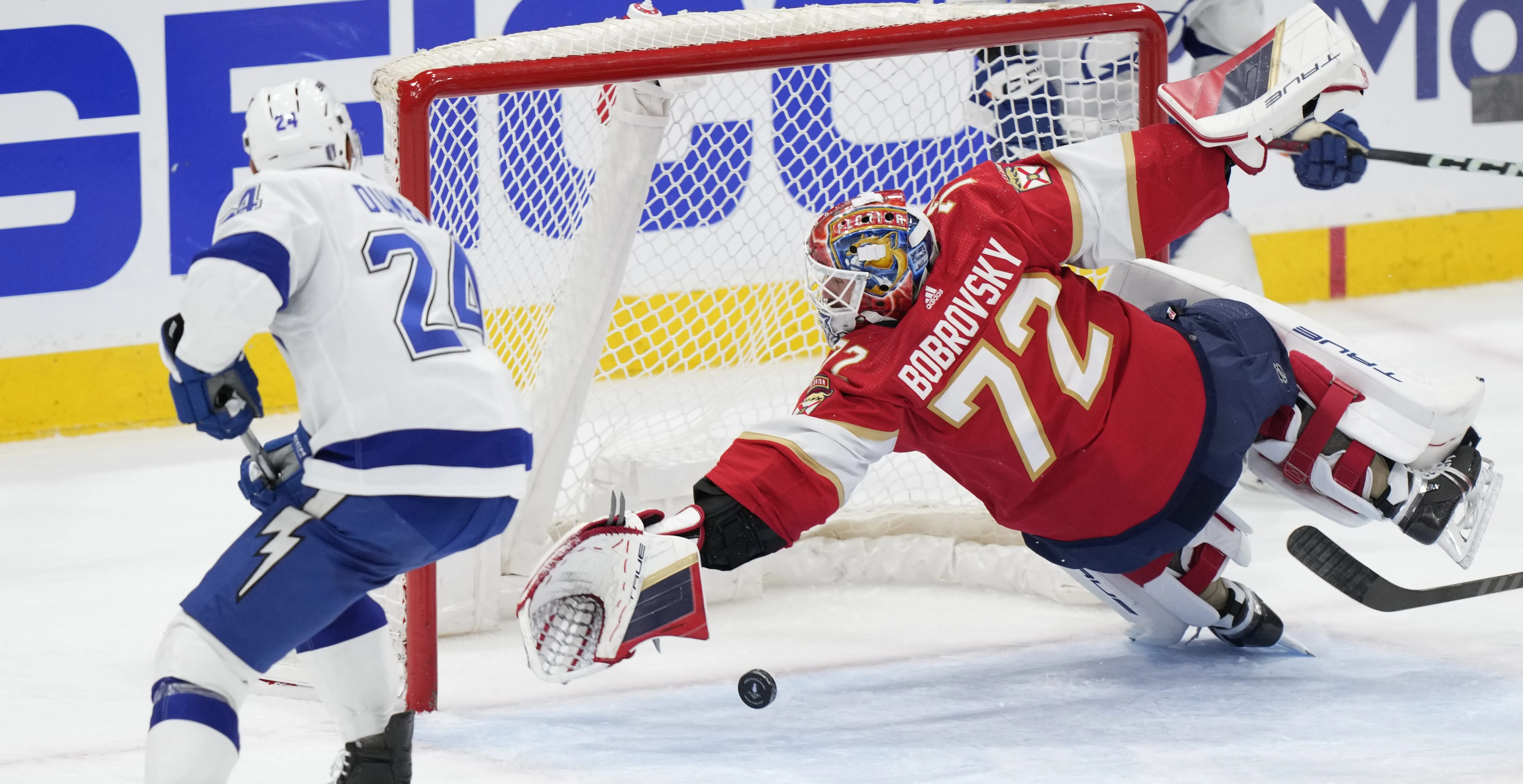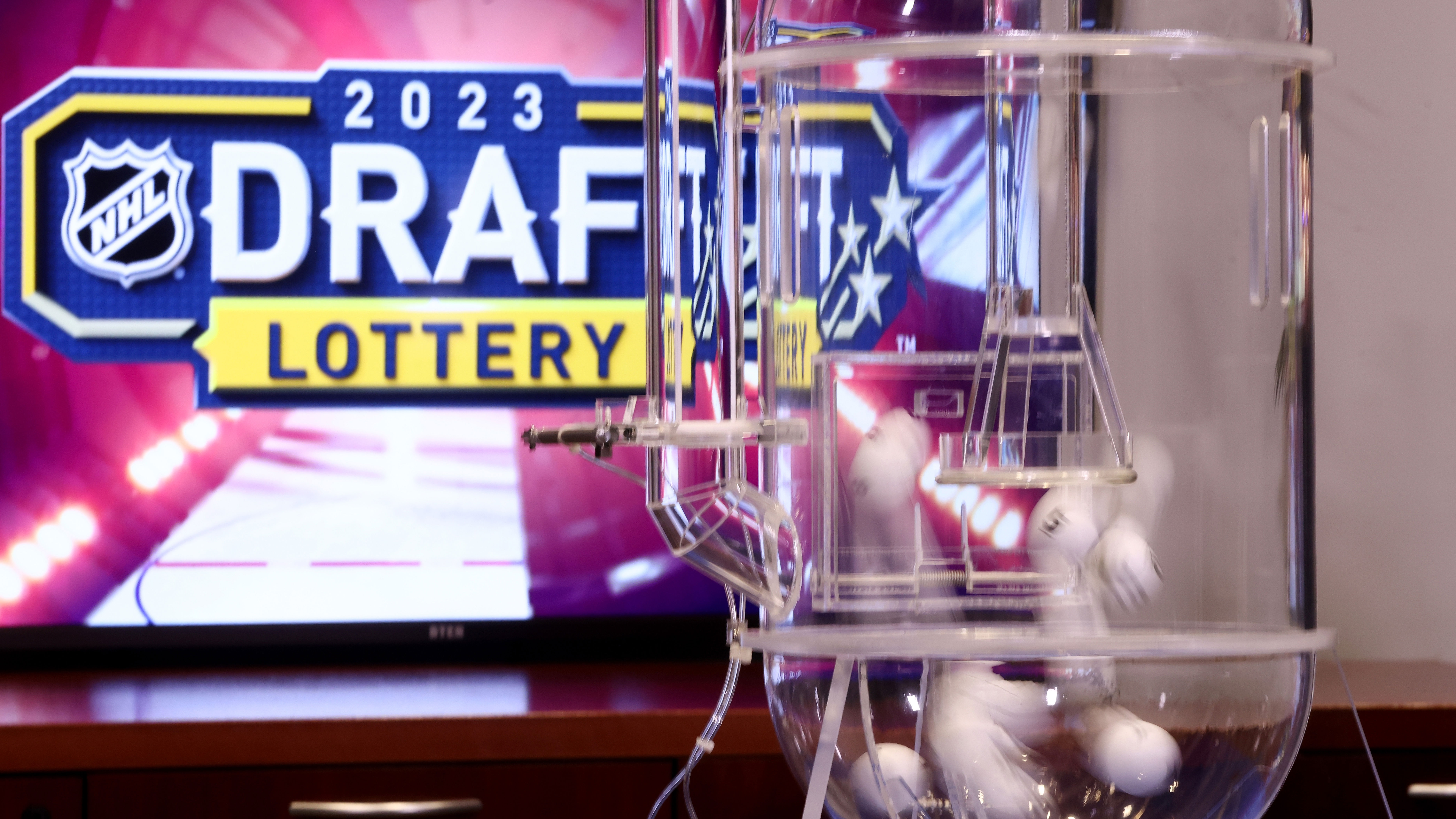When Dylan Sikura didn’t make the Blackhawks out of training camp, it came as a little bit of a surprise. He was supposed to factor into the top-nine forward group.
Instead, he spent the first few months in Rockford, where he led the IceHogs with nine goals, 18 points, 90 shots on goal and four game-winning goals through 26 games. It earned him a call-up to Chicago on Dec. 12.
But he lasted only 11 games before getting sent back down to Rockford after recording zero goals and three assists.
"Just try to stay positive like the first time,” Sikura told NBC Sports Chicago on where his mindset is at. “Entering pro hockey for the first time, it could be a culture shock for some guys and for some guys it just takes some time. That was my first full experience of what the NHL is like and how the game is played up there. It was nice to get up there and get a chance to play.
"Coming back down, you know what you have to work on and know what parts of your game you need to get better at. I think that's something that, coming back down, talking to Jeremy [Colliton], he gave me a lot of positive criticism and stuff you need to work on and that's the stuff I've been focusing on."
IceHogs interim head coach Derek King said he sometimes worries about players of Sikura’s caliber who get sent down a second time and believe they should be in the NHL.
But he was very complimentary of Sikura’s attitude and being a professional about it. It’s because Sikura knows he needs to be better, and more importantly, wants to.
NHL
"I think before he left he was struggling a little bit with what type of player he should be,” King said. “Obviously he's got some offensive skill, we know that. You’ve got to learn at this level, you’ve got to be able to play at both ends of the ice. I think he was not thinking like that. He was thinking more, 'I got to put points up, points up.' So by the time he got up there, we had already adjusted him where he was being a little more responsible in the D-zone, which helped him when he went up. Because obviously, you guys know, in the NHL, if you can't play D-zone, there's some pretty good hockey players on the ice and that puck's in the back of the net, you may not see the ice again. So I thought he did a great job when he was up there.”
The challenge for Sikura was that he wasn’t getting much ice time with the Blackhawks — he averaged 10:30 minutes per game, which was 2:54 fewer than his ice-time average in five games last season. And when he did get the ice time, trying to make the most of it.
"Yeah, it's tough,” Sikura admitted. “I think there's a lot of aspects that go into it. Obviously the team was struggling a bit and you're trying to make a name for yourself, and it could be tough at times. They're trying to get as many wins, and try to throw the guys up that are going to help the most. But for me it was just trying to get more and more comfortable every game. It was my real first taste of what it was like up there and you can kind of see how fast the game is played out there.
"One of the big reasons is you’re up there for a reason and you got called up for a reason. You're obviously doing good things down here and you got to try to translate your game to up there and do what you can. I'm a guy that, I like to make plays, I like to have the puck. Just cause I'm changing levels it doesn't mean I have to change the way I play. And that's just something that will come with getting more comfortable and more time."
In 16 career NHL games, Sikura is still looking for his first goal. He created a lot in his first few games this season, but couldn’t break through. He couldn't even get one off the skate or body, which made it even more frustrating because he really had to work for it.
“That was probably the most challenging part,” Sikura said. “I think in the games I played, the first couple, I had at least a couple good chances that you kind of second guess yourself after that, that should've went in or if you weren't gripping your stick, that would've went in. Up top I was doing everything, from changing my tape job to trying to change some different things in talking to the older guys, just little things like that that guys do around the league. I was fortunate enough to come back down here and score a couple goals early. It helps, definitely, but it's important not to get down on yourself. It's obviously tough to score, but I think as long as you're getting good looks and good chances then they're bound to go in."
In college, Sikura accumulated 146 points (58 goals, 88 assists) in 137 career games across four seasons with Northeastern for a points-per-game average of 1.07. With the IceHogs, he has 26 points (12 goals, 14 assists) in 35 games for a team-leading points-per-game average of 0.74.
Why isn’t his production translating to the NHL?
“They're quicker, they're faster and they're definitely stronger,” King said of NHL players. “Obviously any player like that who's that size needs to put some strength on and get some muscle on his body. But he can play the pace and he thinks the game. I think, too, it's where are you going to put him on the power play? He's a power play guy, but the way Chicago plays the power play, he's not going to see the ice right now. And the ice time's not there. When you're a young guy and you get up, they don't just throw you to the wolves, you have to earn your place. I think he did well with the ice he got, but when he comes down here he knows he's going to play a lot and that's where he gets the confidence. So the next time he goes up, maybe those points will come a little easier."
The first go-around was certainly more difficult to swallow for Sikura, who had aspirations to be on the Blackhawks from Day 1. The second time, it was needed for a different reason and it's because he wasn't getting the opportunity to maximize his talents and wasn't taking full advantage of the ice time he got.
But he knows what kind of player he wants to become, and it's all about trying to fine-tune that in the AHL. So when he does return to the big leagues, he's ready to flourish.
"I think at this point in your career you know what kind of player you're striving to be and you watch guys around the league and the NHL of guys you look up to are obviously a lot better," Sikura said. "But hopefully one day you can be that. From here on it's kind of just fine-tuning and getting used to playing the way [they play].
"For me I always think about the college days and how you play out there and how you can translate it out there, is having the puck and holding onto the puck more. Obviously up top it's a lot faster, so down here, that's how you learn, you get better with the puck, learn how to make plays and just adapt to the pro hockey game. It can be frustrating at times, it can be tough at times, especially when we're down and we're losing, but it's important to stay positive and try to take as much out of each game and each day you're down here."
Click here to download the new MyTeams App by NBC Sports! Receive comprehensive coverage of your teams and stream the Blackhawks easily on your device.


